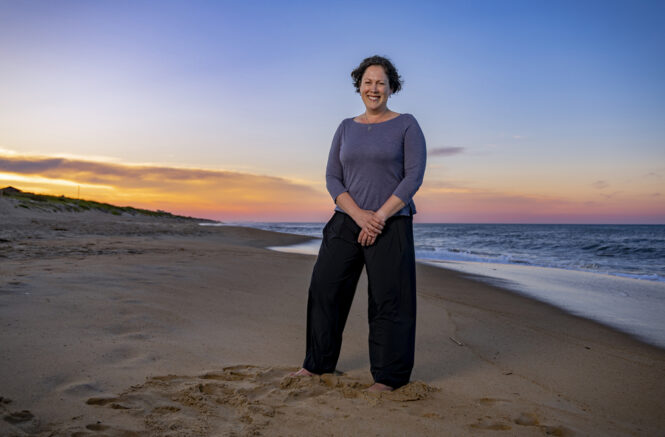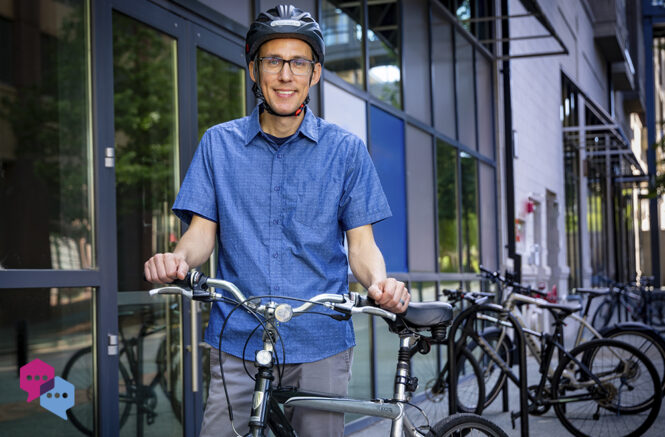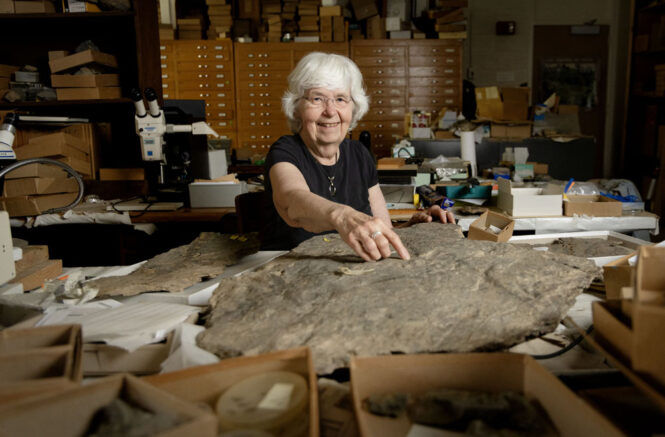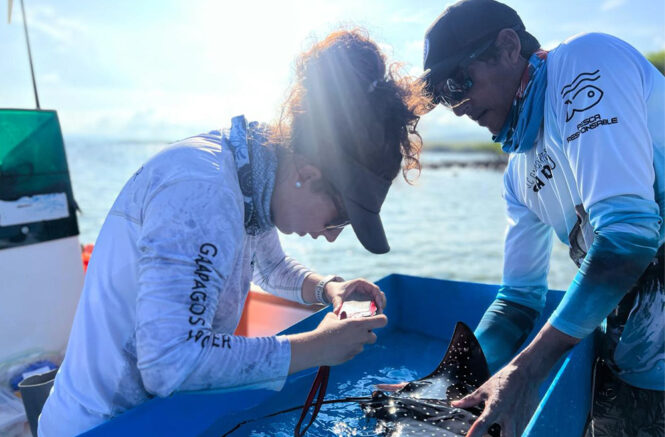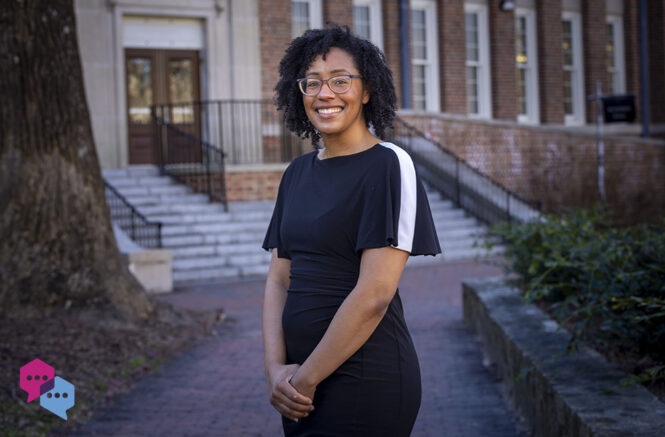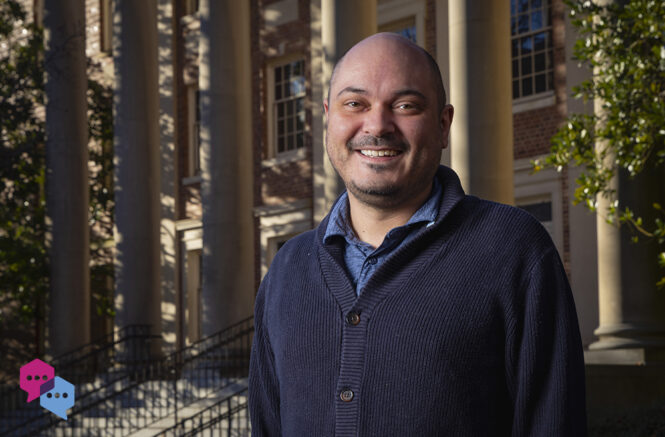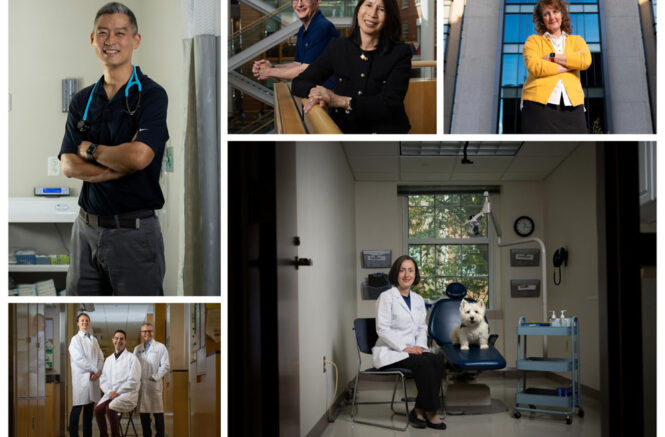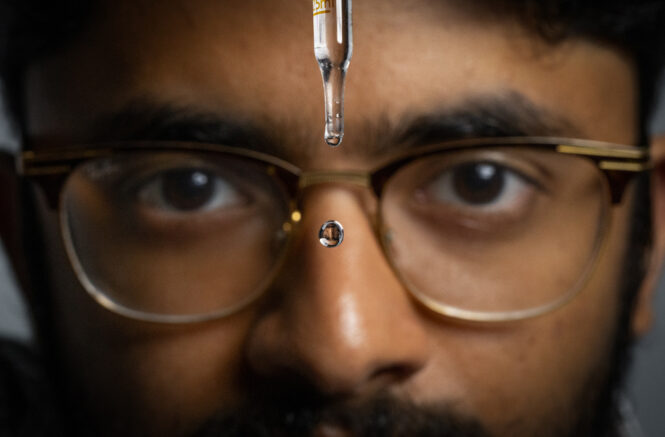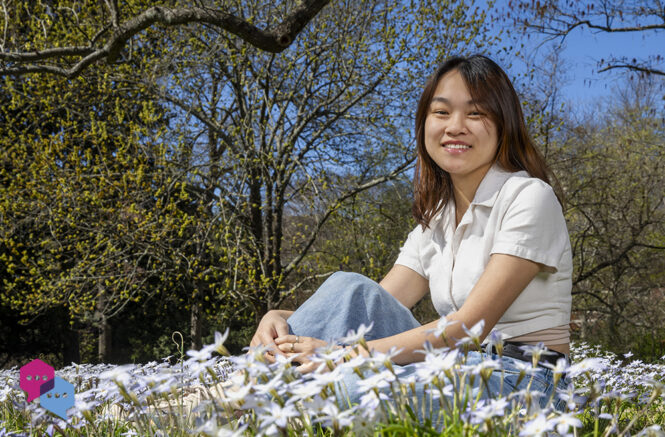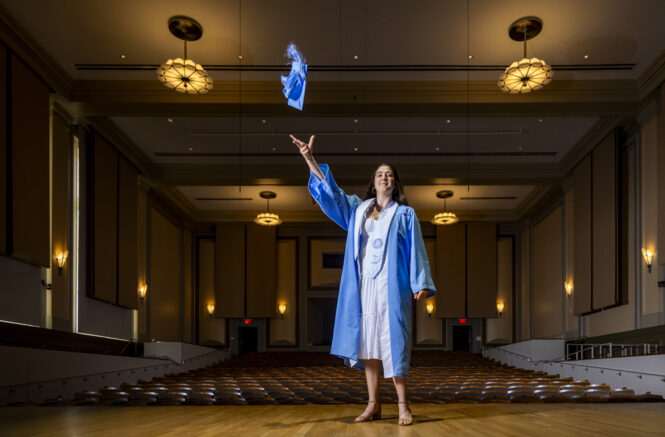Anchoring Communities
Lindsay Dubbs conducts research in the Outer Banks to protect marine ecosystems.
RUNC: Seth LaJeunesse
Seth LaJeunesse researches safe and healthy modes of transportation.
Adventures in Ancient Plants
Patricia Gensel has spent her career studying 400-million-year-old plants at Carolina and across the globe.
Oceans of Knowledge
From the Caribbean to the Gulf of California to the Pacific, Salomé Jaramillo Gil is willing to travel for her marine biology studies.
RUNC: Ashley Anderson
Ashley Anderson studies risky politics in dangerous places.
Just the Facts
After helping create a fact-checking service in South Korea, Heesoo Jang continues to improve trust between readers and the media at Carolina.
Legacy in Labor
Herrison Chicas explores how children of immigrants carry their parents’ experiences into the workplace.
RUNC: Lightning Czabovsky
Lightning Czabovsky studies how the media depicts diverse audiences.
Let’s Get Clinical
Researchers across Carolina manage clinical trials to get novel treatments and interventions into the hands of those who need them most.
Drop by Drop
Abel Abraham shares his journey from being a first-year student during the pandemic to becoming an award-winning mathematics major.
RUNC: Mia Foglesong
Mia Foglesong unveils the mind-bending mysteries of psychedelics.
That’s a Cap!
Undergraduate researchers from Carolina’s 2024 graduating class share how research has shaped their college experience.



